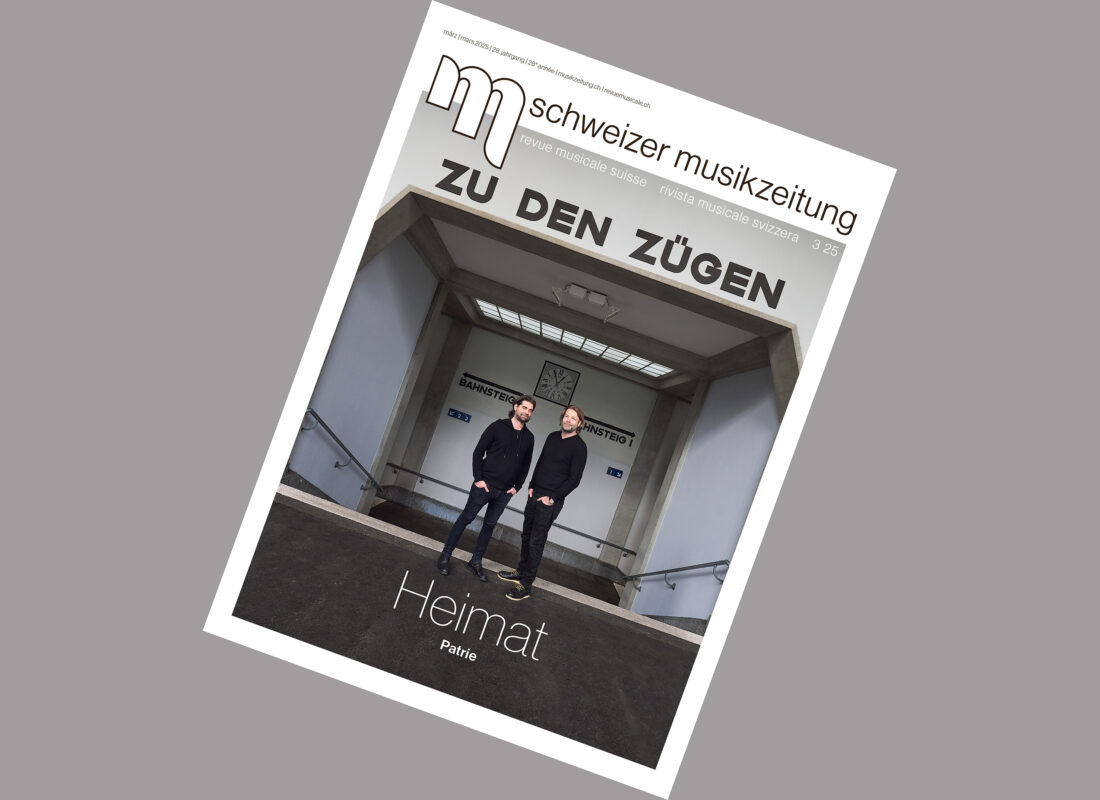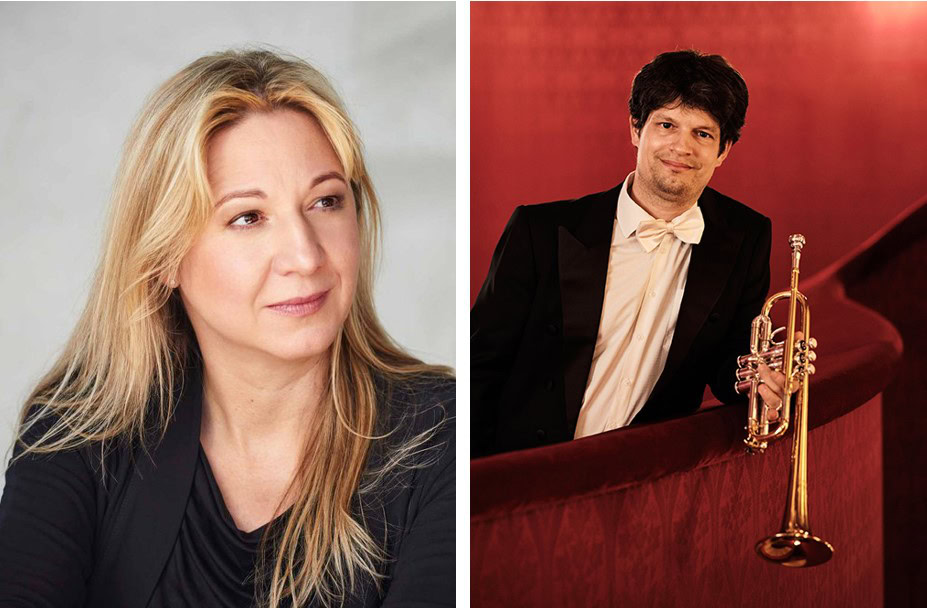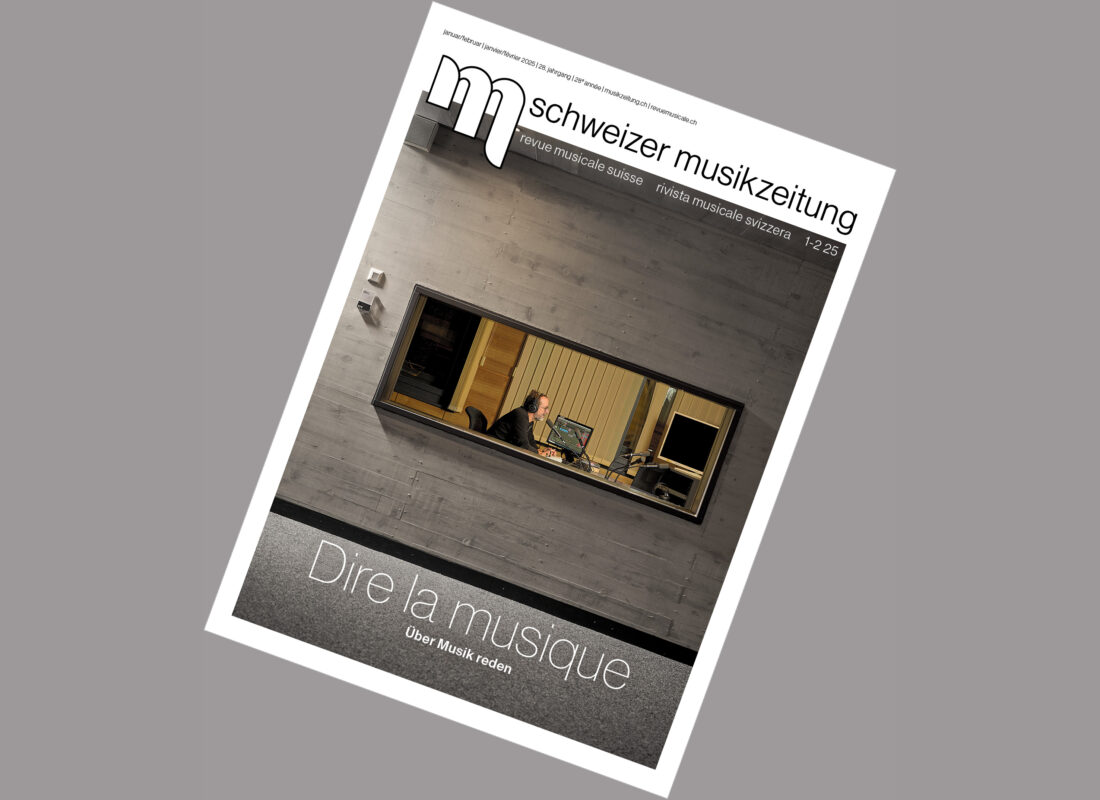Discussion
On the article "Exciting tasks for everyone who hates Wagner!" by Roman Brotbeck ("Schweizer Musikzeitung", No. 7/8/2013, p. 19 - in the "Carte Blanche" series)
On the article "Exciting tasks for everyone who hates Wagner!" by Roman Brotbeck ("Schweizer Musikzeitung", No. 7/8/2013, p. 19 - in the "Carte Blanche" series)
Targeted provocation can have a stimulating effect. However, this effect is lost if unobjective generalization or manipulative presentation is used. Roman Brotbeck formulates in the second half of his contribution is a worthy concern: he encourages an unprejudiced engagement with works of music theater whose appropriate reception has been blocked or hindered by derogatory statements by Richard Wagner. The presentation of this concern would not have required the preceding sentences; these initially suggest that the author wanted to ensure the reader's attention with some provocative observations, but turn into a series of insinuations and half-truths.
It may be methodologically correct not to be influenced by the history of Wagner's impact when considering his person and biography. However, an examination of the history of Wagner's impact cannot ignore the fact that his particular significance in the years of the National Socialist regime is not only due to posthumous appropriation (as happened in the case of Anton Bruckner, for example), but also to the proximity of strategies and positions. According to Brotbeck, the phrase "forefather of National Socialism", used in a "murmuring" and "evocative" manner, represents an inadmissible oversimplification of this connection. If it could actually be found in one of the accounts criticized by Brotbeck, this would not be a reason to declare the examination of the problematic aspects of Wagner mentioned as unnecessary or inappropriate - it would at most be a reason to call for a more differentiated presentation. In this part of his text, Brotbeck gives the unfortunate impression that he wants to or can relativize the assessment of Wagner's anti-Semitism, as his militant statements fall into the period before the rise of National Socialism. However, there is (to put it bluntly) no "mercy of early birth" (or "mercy of timely death") for this anti-Semitism.
The insinuation, packaged in a drastic image in the last sentence of the first paragraph, that the discussion of Wagner's anti-Semitism takes the place of the much more uncomfortable examination of the crimes of the National Socialists and thus represents a diversionary maneuver or a repression, is also outrageous - at least as long as it is not substantiated in a single case, i.e. as long as it can be read as an accusation against the entirety of those writing about Wagner's anti-Semitism. Since the beginning of the sentence refers to "crimes" in general (after the mention of "mass murderers" in the previous sentence), the impression actually arises that Brotbeck's blanket accusation of repression or lack of coming to terms with the past applies to the treatment (at least by Wagner critics) of the "Third Reich" in general - the fact that the following paragraph of the text only mentions examples from the field of music, however, implies that Brotbeck's accusation only refers to the treatment of National Socialist-dominated musical life.
While the first paragraph talks about Wagner critics and (in the sense of the title of the text) "Wagner haters" (with side blows to the particularly extensive Wagner literature in the "Wagner year"), the second paragraph uses three examples to illustrate the current treatment of musical protagonists and products from the National Socialist era, which can at best be considered an excursus in the context of the Wagner theme of the other parts of the text. Brotbeck mentions examples that he claims can be found "up and down the country" or generally "in the churches" (of which there are still quite a large number) - with this and the previously expressed insinuation of a choice of topics determined by repression and convenience, Brotbeck creates the generalized impression that there has been no serious study of the victims, profiteers and perpetrators of the National Socialist synchronization of musical life. However, this impression does not correspond to the facts. It may well be that work on this topic only began late and even after the first comprehensive publication (Joseph Wulf: Music in the Third Reich - A documentaryGütersloh 1963) has long remained a topic of outsiders; however, Brotbeck should be aware that since the beginning of the 1980s (since Fred K. Prieberg's book Music in the NS stateFrankfurt/M. 1982, new edition Cologne 2000), a large number of essays and books have been published on the subject. The impact of these studies on repertoire and program design is not great, since most of the music discussed here is music that is largely avoided anyway as "no longer new, but not yet old" - but at least it has been possible to point out numerous composers who were ostracized, expelled and murdered by the National Socialists in performances and editions (P. Ben-Haim [P. Frankenburger], H. Berlinski, B. Goldschmidt, E. I. Kahn, V. Ullmann and others). These initiatives have by no means reached their goal; they should be intensified, widely discussed and made generally known - but it cannot do justice to the current situation to prematurely deny the efforts, as Brotbeck does in his text.
Two achievements cannot be expected from these attempts: Compensation for what was done to the persecuted and displaced persons, and a clear classification that frees them from further reflection all non-persecuted and non-emigrants into "good" (or at least "untainted") and "bad". Many cases have been the subject of controversy for years - the discussion surrounding Hugo Distler, whose contradictory behavior was the subject of a separate publication as early as 1997, may serve as an example (Stefan Hanheide [ed:] Hugo Distler in the Third ReichOsnabrück 1997). Richard Strauss also showed a changeable and sometimes puzzling behavior, the description of which has found its way into encyclopedia articles (see wikipedia.org/wiki/Richard_Strauss) - his presidency in the early years of the Reichsmusikkammer mentioned by Brotbeck naturally deserves criticism. But in Brotbeck's opinion, how should the Strauss case be handled in future? Should performances of his works be abandoned? Wagner, whom Brotbeck portrays in his first paragraph as an unjustly "beaten" great-great-grandfather, has so far been spared such measures despite the "beatings": The scolding of Wagner, declared inappropriate by Brotbeck, has not yet been able to effectively limit his popularity and presence on the repertoire.
Brotbeck describes Carl Orff's Carmina Burana as one of those "National Socialist propaganda plays" that are still frequently performed today. What are the other propaganda pieces that are still (or possibly again) valued today? What makes the Carmina Burana as a propaganda piece - for example through the archaizing style of the music or the text? Was the work possibly composed specifically for the purpose of propaganda? So far, it has not even been proven that it was actually used as a propaganda piece. The premiere in 1937 took place as part of the last Tonkünstlerfest that the "Allgemeine deutsche Musikverein", founded with the participation of Franz Liszt, was able to organize before its forced dissolution. The Carmina was successful, but "initially seemed sufficiently idiosyncratic to appear suspicious in Rosenberg's and even Goebbels' circles" (Michael Kater: The abused muse - musicians in the Third ReichMunich and Vienna 1998, p. 363; similarly p. 352). In contrast, wikipedia.org/wiki/Carmina_Burana_(Orff) writes about the work: "It was especially popular during the Nazi dictatorship. Nazi celebrities such as Hitler and Goebbels were particularly fond of Orff's Carmina Burana." However, only one passage of the book is cited as evidence for this not entirely successful portrayal, even in its diction Adolf Hitler: A Psychological Interpretation of His Views on Architecture, Art, and Music by Sherree O. Zalampas (Bowling Green State Univ. 1990), where it says "The melodies are quite folk-like in their simplicity and clear-cut stanzas. For these reasons perhaps, Hitler liked the work." In 1940, the Carmina was conducted in Dresden by Karl Böhm, who had actively supported National Socialism through public appeals, but performances in Görlitz were canceled during the war at the instigation of the National Socialist pianist Elly Ney, who described the work as a "cultural disgrace" in the presence of the local NSDAP district leader (Prieberg p. 326).
This necessarily brief overview may show that the categorization of Orff's successful piece as National Socialist propaganda music is a regrettable exaggeration and Brotbeck's highly idiosyncratic interpretation. This does not absolve Orff of his "entanglements": He allowed himself to be sponsored by state agencies and wrote commissioned works, such as the composition Entry and round dance of the children for the 1936 Olympic Games in Berlin. An evaluation is complicated in individual cases: When Orff had agreed to compose incidental music for Shakespeare's A Midsummer Night's Dream he must have known that behind the commission was an attempt by the National Socialists to create a replacement for Felix Mendelssohn Bartholdy's banned stage music. The commission must have been very attractive for Orff, as he was now able to present and market a reworking of the music he had already composed on the same theme in 1917 - at that time, however, without political implications or ideological motivation.
Through the aforementioned, undoubtedly groundbreaking and commendable book by Prieberg, it became known in 1982 that Johann Nepomuk David composed the motet Hero award on the words of Adolf Hitler. Prieberg's announcement led to discussions at the time and to the resignation of the Dutchman Cornelis van Zwol from the presidency of the "International Johann Nepomuk David Society", which was founded in 1978. Here is some additional information on the work, based on research and publications by Bernhard A. Kohl: David set the text, which has not yet been found in other sources, to music: "He who is so faithful to his people shall himself never be forgotten in loyalty". The motet bears the dedication "In memory of the fallen teachers and students of the Staatl. Musikhochschule in Leipzig" and was performed twice, first on November 7, 1942 on the occasion of a ceremony of the German-Japanese Society, which had been brought into line since 1933 - this is the performance mentioned by Brotbeck "in front of diplomatic representatives of the Axis powers" - and then on March 27, 1943 at the same location (in Leipzig). March 1943 at the same location (in the crypt of the Völkerschlachtdenkmal) in a memorial service for the fallen teachers and students, which took place as part of the celebrations for the 100th anniversary of the founding of the Leipzig University (until 1941 the conservatory). The Breitkopf & Härtel publishing house, which published almost all of David's published works, reproduced the composition for the two performances but did not publish it: There is no copyright notice and no publisher's or edition number, so it is assumed that David did not release the composition for publication. There are no official records of the circumstances of the commission and text selection, only a message from David to Kohl, who personally informed David of the commission. Hero award after he - years before the publication of Prieberg's Music in the NS state - According to his own account, David was commissioned to compose the text (this is confirmed by David's students at the time) and had to choose the text from a number of suggestions, whereby all the other suggestions were "unusable", i.e. probably more ideologically charged than the quotation set to music, in which the authorship is more compromised than the wording. In statements by two students at the Leipzig University at the time (published in 1983 in issue 4 of the Messages of the International Joh. Nep. David Society) states that David was embarrassed to present the piece to the choir he conducted and that he asked for understanding for this "compulsory exercise".
David did not reject financial support either: In 1941, he was awarded the "Gaukulturpreis des Gaues Oberdonau der NSDAP". In Prieberg's extensive last publication German Musicians Handbook 1933-1945 (CD-Rom-Lexikon, Kiel 2004), David's accession to the "Reichsbund Deutsche Familie", which had existed since 1922 but had long since been brought into line, is documented for November 1943. In contrast, many testimonies and reports about David's time in Leipzig suggest that he retained his independence from the ruling ideologies. A few examples: In 1938, David had organized a performance of Stravinsky's Symphony of Psalms explicitly against a verdict issued by the "municipal Nazi cultural commissioner"; he stood up for the composer Günter Raphael, who was regarded as a "half-Jew" and had been banned from working and performing. David was provisionally entrusted with the management of the college in 1942, but was never officially appointed director of the institute - this is misrepresented in the extensive Wikipedia article on the Leipzig Musikhochschule. In his capacity as provisional director, David fought to maintain teaching and examination operations until February 1945. It will probably never be fully clarified to what extent the Hero award and possibly also the aforementioned accession to a synchronized institution should be seen as a tactical approach. The extent to which David, as director of the university's choirs and as a composer, saw himself hindered in his commitment to church music is demonstrated by the quotation from a letter he wrote in the summer of 1942, the year he composed the incriminated Hero awardto his student Helmut Hilpert, who had been drafted into the Wehrmacht - here, after listing David's latest instrumental compositions, it says: "Writing for choir is not possible because the texts are actually forbidden." This statement can be read as a reference to the fact that David did not want the Hero award was not considered a valid work even at the time of its creation.
This once again brief overview cannot, of course, lead to glorifying David's work during the time of the "Third Reich" (as has indeed been attempted elsewhere), but it may lead to the insight that Brotbeck's attempt to include David in a collection of examples of musical exponents of National Socialism should be seen as an unobjective generalization. His presentation is contestable and tendentious not only because it places performances of David's works in the vicinity of repression and a lack of historical awareness, but also because it creates the impression that David's works were "sung in the churches" in view of the alleged lack of research into the biography of their composer, i.e. performed in many places and therefore quite frequently overall. The opposite is the case: performances of David's works are a major exception in the church as well as in the concert hall, which is regrettable given the qualities of these compositions. The discussion about David's work during the years of the "Third Reich" has already had a negative effect on the frequency of performances in two ways: on the one hand, the fact that Hero award The term "in dubio contra reum" has been used again and again in a similarly bold and undifferentiated way to Brotbeck. A dubious "in dubio contra reum" has been preserved, which was understandable as an emotional reaction in the phase of the first confrontation with the topic of "music in the Nazi state", but is no longer appropriate today. An example of this generalization from the writer's experience: A renowned Swiss organist expressed in a conversation about 20th century music that it was certainly worthwhile to deal with David's organ works, but was inadmissible "for political reasons". - On the other hand, the tonal church music of the 1930s, which was often based on old patterns, was generally assumed in some discussions to have a stabilizing function and effect on the Nazi regime - regardless of the composer's personality. In this context, we are reminded of statements made by the organist and composer Gerd Zacher in the journal Music and church and Michael Kater's general suspicion of "the new school of restorative church music" (p. 313). The works of David and many other composers - including their church music - defy such labeling. What is alarming is that a pigeonhole mentality is sometimes perceptible here that is remotely reminiscent of embarrassing patterns: the equation that a composer in Germany at that time who composed tonally or modally must certainly have been a "Nazi" naturally works just as little as the absurd equation found in Nazi publications that "atonal" compositions must inevitably be the work of a Jewish composer.
The aim of these remarks is not to whitewash a single personality as much as possible, but to call for a differentiated view and presentation. This results in "exciting tasks" for all those who do not want to settle for the level of regulars' table slogans. Of course, nothing should be glossed over or left out when looking at history - Richard Wagner's anti-Semitism just as little as concessions, political naivety, ingratiation or active complicity of musicians in the Nazi state. - These comments go beyond the usual scope of a letter to the editor, although they only touch on many aspects in the form of an overview. In order to maintain the form of a letter to the editor and prevent the text from becoming even longer, the bibliographical references are incomplete - but these can be provided in full if required.
Matthias Wamser, Rheinfelden
wamserbaerthlein@sunrise.ch








